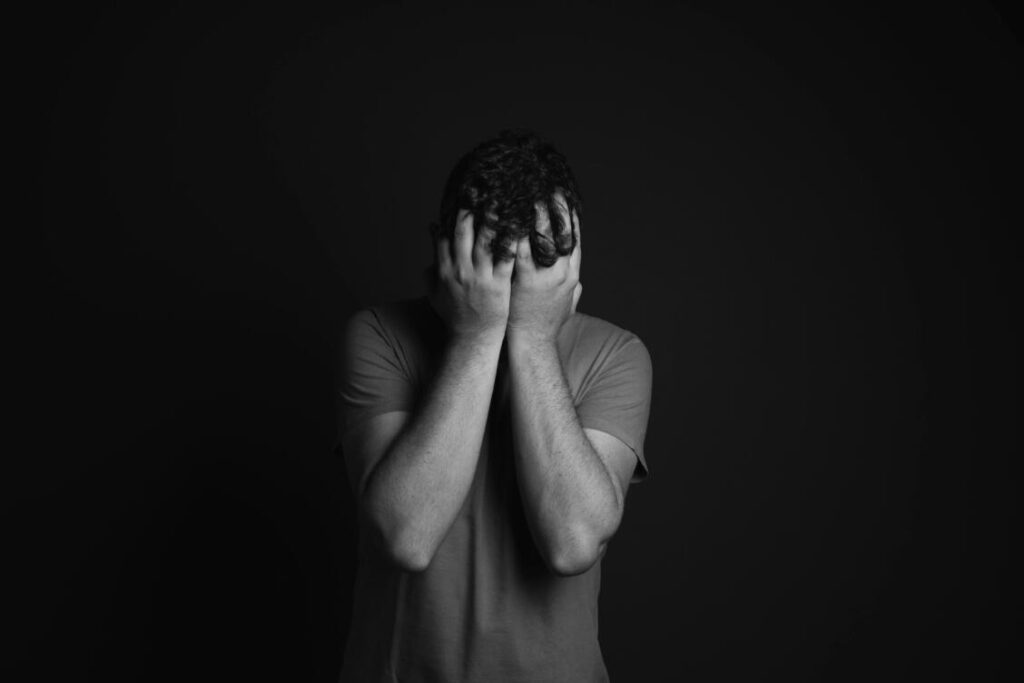Depression is one of the most common mental health challenges affecting people today. Recognizing the early depression symptoms is essential for timely care, effective depression treatment, and preventing the condition from becoming more severe. Many individuals dismiss the early signs of depression as stress or fatigue, but understanding them can make a significant difference in recovery and overall well-being.
What Is Depression?
Before diving into early warning signs, it’s important to understand what is depression. Depression is more than occasional sadness. It is a persistent mental health disorder that impacts mood, thoughts, behavior, and physical health. Unlike temporary feelings of unhappiness, clinical depression disease can last for weeks, months, or even years if left untreated.
Common types include:
- Bipolar depression, where mood swings alternate between highs (mania) and lows (depression).
- Major depressive disorder, characterized by prolonged sadness and lack of interest.
- Situational depression, often triggered by life changes or traumatic events.
Early Signs of Depression
Early depression symptoms may look different for each person. Some individuals notice emotional changes, while others first experience physical or behavioral differences. Recognizing these symptoms with depression is the first step toward managing mental health effectively.
1. Persistent Sadness or Low Mood
One of the clearest signs of depression is a prolonged feeling of sadness, emptiness, or hopelessness that does not improve with time.
2. Loss of Interest in Daily Activities
If activities you once enjoyed no longer bring pleasure, it may indicate the onset of depression. This loss of interest is a hallmark symptom of depression.
3. Changes in Sleep Patterns
Insomnia, difficulty falling asleep, or oversleeping can all signal early depression symptoms. Sleep problems often appear before other severe signs.
4. Changes in Appetite or Weight
Sudden weight gain or loss without intentional dieting may reflect depression symptoms tied to emotional and hormonal changes.
5. Fatigue and Lack of Energy
Feeling drained even after adequate rest is a common symptom with depression, affecting focus and motivation.
6. Difficulty Concentrating
Many people with depression struggle to focus, make decisions, or remember details. This mental fog is an early warning sign of clinical depression disease.
7. Feelings of Guilt or Worthlessness
Negative self-talk, excessive guilt, and feelings of worthlessness often develop in the early stages of depression.
8. Irritability or Restlessness
Not all depression symptoms involve sadness. Irritability, frustration, or restlessness can also signal early struggles with mental health.
Recognizing Physical Symptoms of Depression
Depression is not only an emotional condition—it also affects the body. Recognizing physical symptoms with depression is equally important:
- Headaches and body aches without medical cause
- Digestive problems, such as nausea or stomach pain
- Slow movements or speech, often tied to major depressive disorder symptoms
These subtle signs often go unnoticed but can indicate underlying mental health concerns.
Depression in Different Forms
Bipolar Depression
In bipolar depression, low phases often mirror major depression, with extreme sadness, hopelessness, and lack of motivation. Early detection is crucial for proper bipolar depression treatment.
Clinical Depression Disease
Clinical depression disease presents with more severe and long-lasting symptoms, requiring timely intervention and often a combination of therapy and depression medication.
Situational Depression
Triggered by life events such as loss or trauma, situational depression may improve with counseling and lifestyle changes. However, recognizing the signs of depression early helps in managing recovery better.
Why Early Recognition Matters
Identifying early depression symptoms allows individuals to:
- Seek appropriate depression treatment sooner
- Prevent symptoms from worsening into severe clinical depression disease
- Improve long-term recovery outcomes
- Explore natural remedies and professional support together
At Gendrics, we believe mental health awareness starts with understanding the small changes in mood, behavior, and physical health. By staying informed, people can take the right steps before depression becomes overwhelming.
Natural and Professional Treatment Options
While awareness is the first step, addressing depression symptoms often requires a combination of approaches:
- Lifestyle changes: Exercise, balanced diet, and good sleep hygiene
- Therapy: Talking with a counselor helps process emotions and develop coping strategies
- Depression medication: Prescribed when symptoms are moderate to severe
- Ketamine for depression: An emerging treatment option for resistant cases
- Bipolar depression treatment: Often requires mood stabilizers and therapy
These options vary for each person, making early diagnosis even more important.
Final Thoughts
Learning how to recognize early depression symptoms can change lives. Small shifts in mood, sleep, or behavior may point to deeper issues that need attention. The earlier these signs of depression are understood, the easier it becomes to access proper depression treatment and prevent long-term challenges.
At Gendrics, we aim to provide knowledge, resources, and guidance so individuals can take proactive steps in managing mental health. Recognizing the signs is the beginning of healing.
FAQs
Q1: What are the earliest signs of depression?
Persistent sadness, fatigue, and loss of interest in activities are common early signs.
Q2: Can depression cause physical symptoms?
Yes, headaches, stomach pain, and fatigue are common symptoms with depression.
Q3: How is clinical depression disease different from regular sadness?
It is long-lasting, impacts daily life, and usually requires professional depression treatment.
Q4: What role does bipolar depression play in mood changes?
Bipolar depression involves cycles of low moods alternating with high-energy manic phases.
Q5: When should I seek treatment for depression symptoms?
If symptoms persist for more than two weeks or disrupt daily life, professional help is recommended.








Leave a Reply